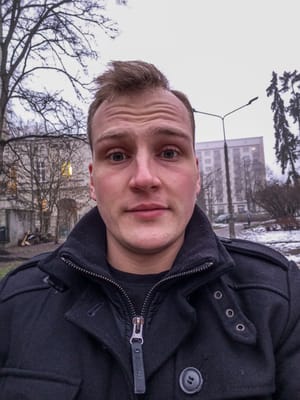When I first encountered the cultures of the Orient, I found them interesting but useless in our capitalistic world. And I’m not alone in such opinions, e.g., one of the greatest popularizers of these cultures, Alan Watts, once called their main tool — meditation “the perfect waste of time.”
We often try to find some ulterior motives or benefits to practicing yoga, meditation, or learning the wisdom of the Orient. But what all these tools and cultures really try to do is to take us away from our silly system or, let’s say — the content of consciousness, so that we can look at life differently.
And that’s how Lao Tzu, the founder of Taoism, once gave seemingly useless advice: “Doing nothing is better than being busy doing nothing.”
He reasoned that it is better to do nothing, be calm and achieve nothing than to waste a lot of time and energy and still achieve nothing.
How different is it from our Western reasoning? Here we need to hustle, try, fall and get up, keep on pushing against any odds, despite huge stress, and even when we don’t see any results.
And everyone needs to do this — if you don’t, then you are lazy. Also, there is no way to withdraw from the system as an individual is under huge economic pressure, so how are you going to sit, be calm and do nothing?
We might say that Lao Tzu’s words are offensive or invite us to laziness in life, yet they hold great wisdom of the basic principle of Taoism — Wu Wei.
The Way of Genuine Action
Wu Wei or to act without wei, means “inaction,” “non-action,” or “not-doing.” Yet the more common translation is “unforced action” or “effortless action.” And we can also define it as “sincere or genuine action” — when our actions align with the Dao (“way” of “path” in Chinese).
“To act without wei is to remove the social, conceptual character from our behavior and act on “natural” instinct or intuition.”
By studying the definitions, we find that Wu Wei, by any means, isn’t an invitation to inaction or laziness but encourages us to act — in a specific way. To understand it better, let's compare the learning process of playful and forced activities.
The best example of a playful activity I can find is playing some kind of game — board, video, or any other. Every game has certain rules — often very complex ones, yet we playfully learn them because we want to be good at the game, advance forward, or beat other players.
And the best example of forced activity — for most of us, is systemic education. We learned various things because the system pushed us to do so — authority influence, not because we wanted to. And so we cheated or memorized knowledge without understanding, but just to pass the class.
In this way, learning can be a joyful activity or pure suffering many of us remember from school days. The difference is whether we choose to do something or if we do it because something forces us to do so.
And you might say: “Well, then I’d love to live wu wei and play video games all day.” That’s not true in most cases — we escape to, e.g., video games to take a break from the activities we have forced ourselves to do during the day. We need a reward for the action because it wasn’t sincere.
Wu Wei Lets Us Escape Cognitive Control
I once wrote an article as I found that the biggest obstacle to my productivity isn’t action itself but a smooth transition between tasks. And as I talk to people, many of them have a similar problem — once we start a given activity, we often flow with it, but starting itself is difficult.
There are some cool ways to trick our brain and start doing, like the 5 Second Rule invented by Mel Robbins I shared in the article, but each time whether we like it or not, such activity produces effort.
Psychology describes this effort as cognitive control:
Cognitive control refers to the intentional selection of thoughts, emotions, and behaviors based on current task demands and social context, and the concomitant suppression of inappropriate habitual actions.
And the wide study from 2018 shows that mental work, especially cognitive control, requires physical energy. In this way, each time we switch activities, we need to burn additional energy to control ourselves and back to productivity — it’s not efficient.
“De” — an aura in a state of Wu Wei
The word “De” is a concept in Chinese philosophy described as an aura we have in a state of wu wei, which was key for a spiritual and relaxing process for Taoists and a social or political process for Confucians.
On the West, we know and enjoy a similar thing — whenever it spontaneously happens, as a flow state. It’s this state in which we flow with a given activity, often losing track of time being completely involved.
That’s how the greatest athletes or artists describe their performances — they get into “this state” and get completely involved in the process of playing sports, singing, dancing on stage, or whatever else they’re doing.
And we all love watching people doing something in this state of complete involvement. It’s lovely when someone just flows with a given activity — it’s like watching the waves on the ocean.
And so, the meaning of Lao Tzu’s words is not to be lazy but to encourage us to discover who we are and what we genuinely want to do in life so that we do not have to force too much but live as much as possible in this lovely state of genuine activity.
How to Act Wu Wei?
The first strategy, described as “try hard not to try,” comes from early Confucianism. And its assumption is that if we try doing something very hard for a long time, it eventually becomes spontaneous and genuine.
The second strategy is by Lao Tzu, described as “stop trying,” and it’s opposite to the Confucian strategy. The reasoning behind this strategy is simple — when you try hard to be, e.g., benevolent towards others, it never be genuine action as you seek results, and you become a hypocrite.
The third strategy is “try, but not too hard,” described by a Confucian named Mencius. And it connects the first two telling us that we should try, as we have this potential inside, e.g., to be benevolent towards others, but we shouldn’t try too hard as then it won’t be genuine.
The fourth and final strategy is “forget about it” by a Taoist named Zhuangzi. This strategy suggests that all we need to do is clear our minds, and then Dao — the way, will lead us in the right direction.
The Takeaway
It’s lovely to write about great ancient cultures, the evolution of their strategies, and all this, but it’s not so practical.
Yet, one modern Buddhist teacher, Thich Nhat Han, once said:
“When we look at the ocean, we see that each wave has a beginning and an end. A wave can be compared with other waves, and we can call it more or less beautiful, higher or lower, longer lasting or less long lasting. But if we look more deeply, we see that a wave is made of water.”
In this way, we all are like waves in the ocean. We are who we are, and we can’t be different — if the whole ocean flows to the left, then one wave won’t flow to the right. We all have specific genes and gifts — predispositions, and we should use them, not fight our nature, trying to be different.
For me, after long years of searching and finally finding myself, the meaning of Wu Wei is to stop boxing with nature, discover our gifts and predispositions and embrace them.
When we stop seeking social ideals but follow our honest passion and curiosity, we suddenly meet the right people, and things start happening in our lives just as if the whole universe was pushing us.
Whether we call it aligning with the Dao or flowing in the right direction, we all know this feeling when “things just suddenly happen.” And this is my definition of Wu Wei — sincere action when we know who we are, embrace it, and enjoy a given process without any ulterior motive.







